Bodybuilding
Caffeine and Bodybuilding: Is Your Favorite Brew A Powerful Ally?
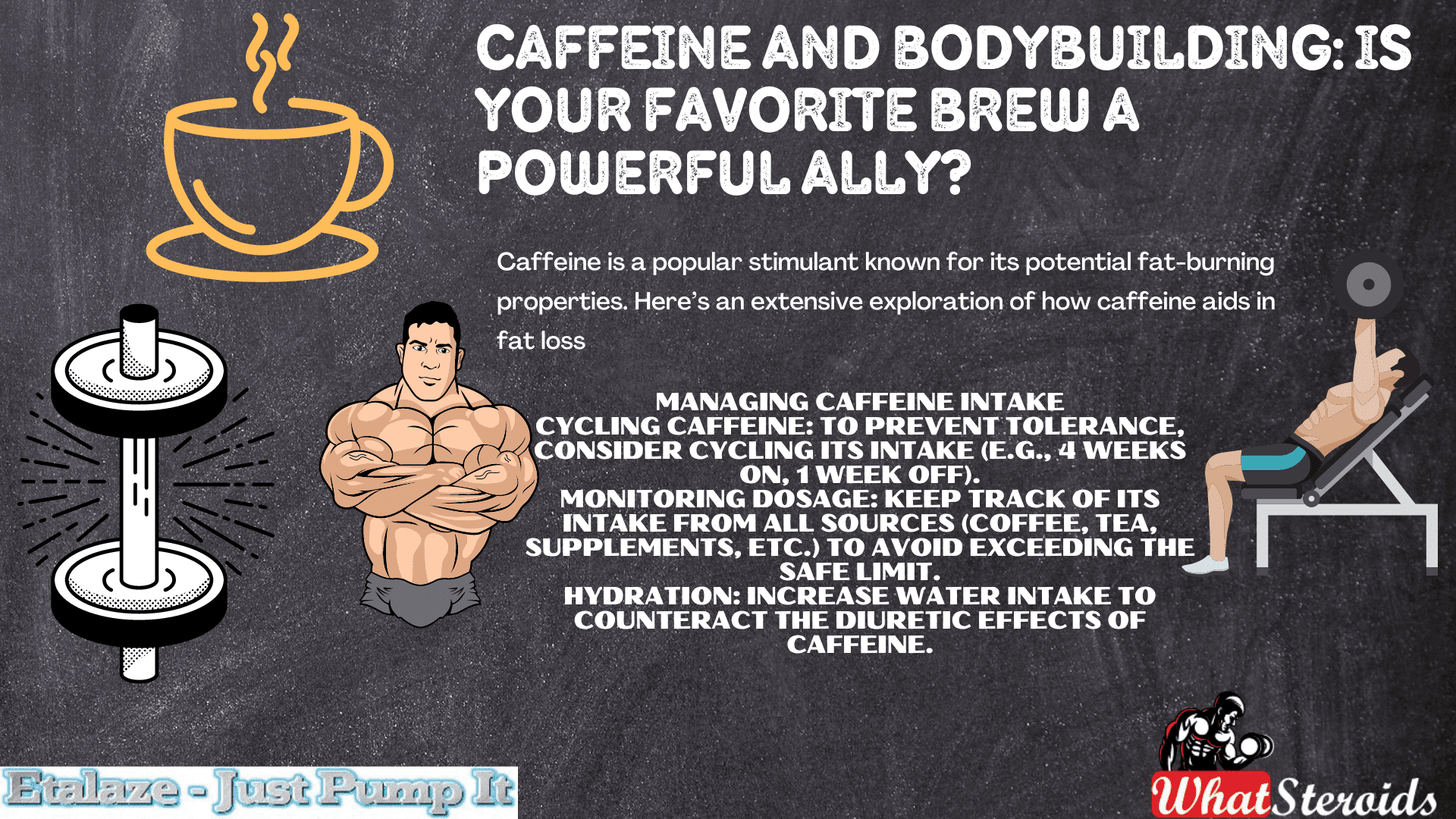
Caffeine, that beloved morning brew, may have some muscle-related benefits! A recent study in Japan found that habitual coffee drinkers had greater skeletal muscle mass. While the exact mechanism isn’t fully understood, it’s intriguing. However, caffeine’s effects on muscle protein synthesis after resistance exercise remain inconclusive. So, while your cup of joe won’t replace your dumbbells, Caffeine might give your muscles a little extra pep!
Appropriate Dosages
Pre-Workout Boost
- Timing: Take it in the morning (about 90 minutes after waking up) or right before a workout.
- Ideal Dosage: Aim for 100-200 mg, adjusted based on factors like tolerance and body weight.
- Safety Limit: Avoid exceeding 400 mg to prevent adverse effects.
During Endurance Events (3-5 hours)
- Recommended Dosage: For sustained endurance, consider ~3-6 mg/kg of body weight.
- Example: For a 70 kg (150 lb) athlete, this translates to ~200-400 mg.
Caffeine affects a bodybuilder's body in several ways, both positive and negative. Here’s a detailed look at its effects:
Must Read: Are HMB Supplements Better than Steroids? – Research Review
Positive Effects
- Enhanced Performance and Endurance:
- Increased Alertness and Focus: Caffeine stimulates the central nervous system, leading to improved mental clarity and concentration during workouts.
- Improved Muscle Strength and Power: Studies suggest that caffeine can increase the ability to generate force, enhancing performance in activities requiring strength and power.
- Increased Endurance: By mobilizing fatty acids from fat tissues and making them available for energy production, it helps sustain energy levels during prolonged activities.
- Fat Loss:
- Thermogenesis: Caffeine increases the body’s metabolic rate, leading to more calories burned at rest.
- Fat Oxidation: It promotes the use of fat as a fuel source, which can help in reducing body fat percentage.
- Reduced Perceived Effort:
- It can lower the perception of effort during workouts, making intense exercise feel less strenuous.
Negative Effects
- Dehydration:
- As a diuretic, caffeine can increase urine output, which may lead to dehydration if fluid intake is not adequately managed.
- Sleep Disturbances:
- Caffeine can interfere with sleep patterns if consumed too late in the day, leading to reduced recovery and performance in subsequent workouts.
- Increased Heart Rate and Blood Pressure:
- High doses of it can lead to increased heart rate and blood pressure, which may be risky for individuals with pre-existing cardiovascular conditions.
- Tolerance and Dependence:
- Regular use can lead to tolerance, requiring higher doses to achieve the same effects. Dependence can also develop, leading to withdrawal symptoms like headaches and fatigue if caffeine intake is suddenly reduced.
- Gastrointestinal Issues:
- Some individuals may experience stomach discomfort, acid reflux, or other gastrointestinal issues after consuming caffeine.
Specific Benefits for Bodybuilders
- Pre-Workout Motivation: Caffeine can boost mood and motivation, making it easier to stick to challenging workout routines.
- Muscle Glycogen Sparing: By utilizing fat for energy, caffeine can help spare muscle glycogen stores, allowing for prolonged performance before fatigue sets in.
- Post-Workout Recovery: Some studies suggest that caffeine can help reduce muscle soreness and speed up recovery when combined with carbohydrates.
Managing Caffeine Intake
- Cycling Caffeine: To prevent tolerance, consider cycling its intake (e.g., 4 weeks on, 1 week off).
- Monitoring Dosage: Keep track of its intake from all sources (coffee, tea, supplements, etc.) to avoid exceeding the safe limit.
- Hydration: Increase water intake to counteract the diuretic effects of caffeine.
Understanding these effects can help bodybuilders use caffeine strategically to enhance their performance and achieve their fitness goals while minimizing potential negative impacts.
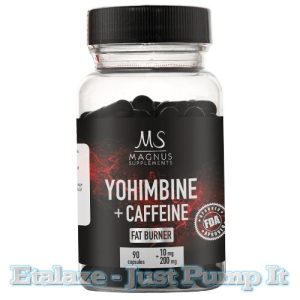 Buy Yohimbine Caffeine 90 Tabs by Magnus
Buy Yohimbine Caffeine 90 Tabs by Magnus
Caffeine Impact on Specific Chemicals
Caffeine impacts the body’s hormones, including adrenaline, cortisol, and insulin, in various ways. Here’s a detailed look at these effects:
Adrenaline
Impact:
- Stimulation: Caffeine increases the release of adrenaline (epinephrine) by stimulating the adrenal glands. This hormone is part of the body’s “fight-or-flight” response.
- Effects: The surge in adrenaline increases heart rate, blood pressure, and energy levels, preparing the body for intense physical activity. This can enhance performance in workouts, especially those requiring bursts of power and strength.
Cortisol
Impact:
- Acute Increase: Its consumption can lead to a temporary increase in cortisol levels, especially in the morning. Cortisol is a stress hormone that helps regulate metabolism, immune response, and energy production.
- Context-Dependent: The magnitude of cortisol response can depend on the individual’s habitual caffeine use, time of day, and baseline stress levels. Regular users may experience a blunted cortisol response compared to non-regular users.
- Long-Term Effects: Chronic high cortisol levels due to excessive caffeine intake can have negative effects, such as impaired immune function, increased fat deposition (particularly abdominal fat), and disrupted sleep patterns.
Also Read: Training clothing: Marvel-Inspired Clothing on Amazon in 2024
Insulin
Impact:
- Insulin Sensitivity: It can temporarily reduce insulin sensitivity, meaning that cells become less responsive to insulin. This can lead to higher blood glucose levels after carbohydrate consumption.
- Acute vs. Chronic Use: While acute intake might impair insulin sensitivity, habitual consumption does not appear to have a significant long-term impact on insulin sensitivity in most people. Some studies suggest that regular coffee consumption might even be associated with a lower risk of type 2 diabetes, possibly due to other bioactive compounds in coffee.
- Individual Variation: The effect of caffeine on insulin sensitivity can vary widely among individuals, influenced by genetic factors, the presence of metabolic conditions, and the overall diet and lifestyle.
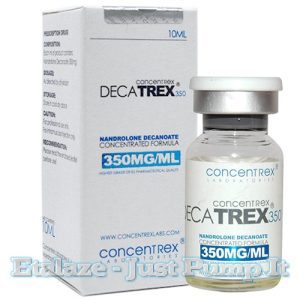 Click Here to Buy DecaTREX 350 mg/ml by Concentrex
Click Here to Buy DecaTREX 350 mg/ml by Concentrex
Fat-Burning Properties of Caffeine
Caffeine is a popular stimulant known for its potential fat-burning properties. Here’s an extensive exploration of how caffeine aids in fat loss:
Mechanisms of Fat Burning
- Thermogenesis:
- Definition: Thermogenesis is the process of heat production in the body.
- Effect of Caffeine: Caffeine increases thermogenesis by stimulating the central nervous system. This leads to a higher metabolic rate, causing the body to burn more calories at rest and during physical activity.
- Lipolysis:
- Definition: Lipolysis is the breakdown of fats into fatty acids and glycerol.
- Effect of Caffeine: It promotes lipolysis by increasing the release of adrenaline and noradrenaline, which bind to fat cell receptors and trigger the release of stored fat into the bloodstream for use as energy.
- Fat Oxidation:
- Definition: Fat oxidation is the process of burning fatty acids for energy.
- Effect of Caffeine: By mobilizing fatty acids from fat tissues, caffeine increases the availability of fats to be used as fuel, especially during aerobic exercises. This enhances the body's ability to burn fat.
- Energy Expenditure:
- Effect of Caffeine: Caffeine increases overall energy expenditure, which contributes to a greater caloric deficit and, consequently, fat loss. This effect is due to increased physical activity levels and enhanced exercise performance.
Practical Considerations for Bodybuilders
- Timing and Dosage:
- Consume it strategically to maximize performance benefits while minimizing potential hormonal disruptions.
- Avoid excessive intake to prevent chronic elevation of cortisol and significant insulin sensitivity impairment.
- Hydration and Nutrition:
- Ensure adequate hydration and balanced nutrition to support overall hormonal balance.
- Consider the timing of carbohydrate intake around workouts to manage potential blood glucose fluctuations.
- Individual Responses:
- Pay attention to individual responses to it, as effects on adrenaline, cortisol, and insulin can vary.
- Monitor for signs of excessive stress or disrupted glucose metabolism and adjust caffeine intake accordingly.
By understanding these hormonal impacts, bodybuilders can better manage their caffeine consumption to enhance performance and support overall health.
Overall
Caffeine plays a significant role in enhancing muscle mass development through several mechanisms. Firstly, it increases muscle strength and power output by stimulating the central nervous system, allowing for more intense and productive workouts. This heightened performance can lead to greater muscle fiber recruitment and overall muscle activation during resistance training. Secondly, it promotes fat loss by mobilizing fatty acids from adipose tissue, which can enhance muscle definition and visibility. By sparing muscle glycogen stores, caffeine also prolongs endurance, allowing for extended training sessions that are crucial for hypertrophy. Additionally, it has been shown to reduce perceived exertion during exercise, enabling athletes to push harder and potentially achieve greater muscle gains over time.
Lastly, caffeine may have indirect benefits by improving focus and concentration, which are crucial for maintaining proper form and technique during workouts, thereby reducing the risk of injury and ensuring consistent progress in muscle development. Overall, when used strategically, it can be a powerful ally in the pursuit of building lean muscle mass and achieving peak physical performance.
Related Article: Stacking SARMS: Different SARMS Cycles
Bodybuilding
Understanding Trenbolone-Induced Cough (“Tren Cough”)
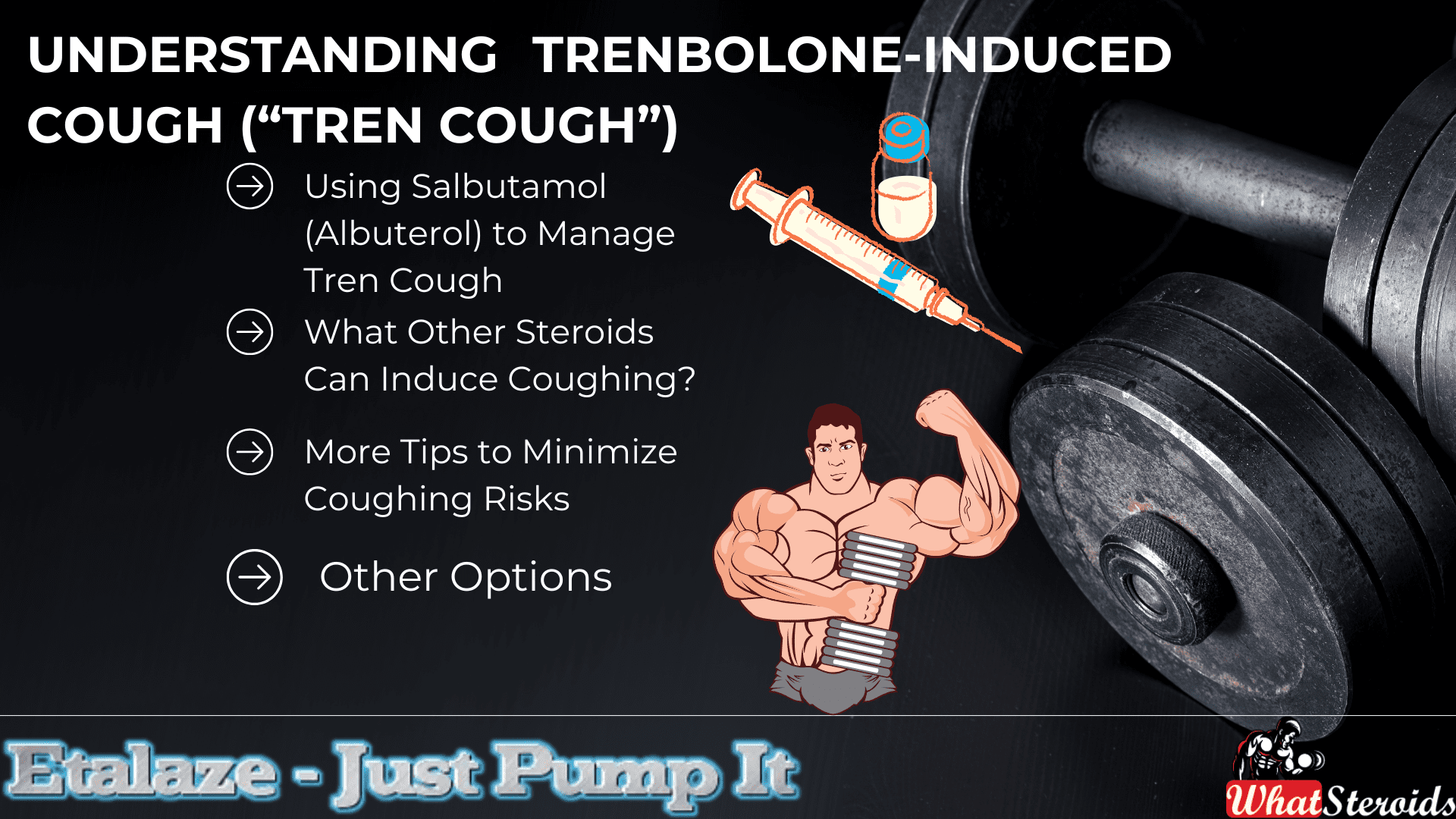
Trenbolone, a potent anabolic steroid, can sometimes cause “tren cough”—a sudden and intense coughing episode shortly after injection. Although not exclusive to Trenbolone, it is more commonly associated with this substance due to its highly irritant nature.
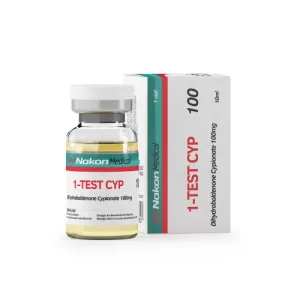 Click Here To Buy 1-Test Cyp 100 by Nakon Medical
Click Here To Buy 1-Test Cyp 100 by Nakon Medical
Mechanisms Behind Tren Cough
Solvent and Carrier Irritation
Trenbolone formulations often include volatile solvents like benzyl alcohol or benzyl benzoate, which may irritate lung tissues when absorbed quickly into systemic circulation.
Prostaglandin Release
Trenbolone promotes increased production of prostaglandins, particularly PGF2α. This compound triggers contraction in the smooth muscles of the lungs, leading to bronchoconstriction and coughing.
Micro-Oil Embolism
Tiny oil droplets from an injection can reach capillaries and travel to the lungs, causing mild embolic reactions that lead to temporary oxygen deprivation and coughing.
Histamine and Mast Cell Activation
For some individuals, Trenbolone triggers histamine release and mast cell activation, mimicking an allergic response and causing bronchospasms and cough reflexes.
Related Article: Best Syringes for Steroid Injection on Amazon
Using Salbutamol (Albuterol) to Manage Tren Cough
- Salbutamol, a widely-used β2-adrenergic receptor agonist, can alleviate tren cough symptoms by:
- Relaxing bronchial muscles, easing spasms that cause coughing.
- Inhibiting prostaglandin effects, reducing bronchoconstriction associated with PGF2α.
- Opening airways, preventing severe respiratory restrictions in susceptible individuals.
Application Methods
Inhaler (Optimal)
Take 1–2 puffs of salbutamol (100–200 mcg) 5–10 minutes before a Trenbolone injection. If coughing occurs afterward, additional puffs can swiftly resolve the issue.
Oral Tablets (Moderate)
Consuming 2–4 mg tablets 30–60 minutes before injection offers slower, longer-lasting relief but may be less effective than inhalation methods.
Nebulizer (Severe Cases)
For individuals with frequent episodes, nebulized doses of 2.5 mg salbutamol can provide substantial relief.
Preventive Measures to Reduce Tren Cough Risk
- Inject slowly to minimize systemic absorption and irritant effects.
- Split doses to lower reaction severity with smaller quantities.
- Opt for ventrogluteal injection sites, which have fewer blood vessels, reducing oil embolism risk.
- Choose lower-concentration solutions to lessen irritation, as higher concentrations (e.g., Tren Ace 200 mg/ml) are more likely to provoke reactions.
What Other Steroids Can Induce Coughing?
Here's a curated list of peptides, SARMs, and PEDs that may potentially cause coughing or respiratory irritation in bodybuilders and fitness enthusiasts:
Peptides
IGF-1 LR3 (Insulin-like Growth Factor): Known for its anabolic effects, IGF-1 LR3 can occasionally cause mild respiratory irritation due to systemic absorption.
TB-500 (Thymosin Beta-4): While rare, improper injection techniques or high doses may lead to transient coughing episodes.
GHRP-6 (Growth Hormone-Releasing Peptide): This peptide can stimulate histamine release, potentially leading to bronchospasms and coughing.
SARMs (Selective Androgen Receptor Modulators)
RAD-140: (Testolone) Some users report throat irritation or coughing, often attributed to solvents used in liquid formulations.
YK-11: Known for its myostatin-inhibiting properties, YK-11 may cause mild respiratory discomfort in sensitive individuals.
LGD-4033 (Ligandrol): Though uncommon, some users experience coughing due to carrier solvents or allergic-like reactions.
PEDs (Performance-Enhancing Drugs)
Boldenone Undecylenate (Equipoise): This injectable steroid can cause “Equipoise cough,” similar to tren cough, due to oil embolism or irritant solvents.
Testosterone Suspension: The water-based formulation may lead to coughing episodes if injected improperly or absorbed rapidly.
Nandrolone Decanoate (Deca-Durabolin): While less common, coughing can occur due to histamine release or systemic irritation.
More Tips to Minimize Coughing Risks
- Use proper injection techniques to avoid embolic reactions.
- Opt for lower-concentration solutions to reduce irritant effects.
- Consider antihistamines or bronchodilators for individuals prone to respiratory sensitivity.
Read More: Joint Stiffness: How to Manage It While on AAS
Are There Alternatives to Cough-inducing Steroids?
Here are some alternatives to cough-inducing steroids that can provide similar anabolic effects while minimizing respiratory irritation:
Peptides
IGF-1 LR3 (Insulin-like Growth Factor)
Promotes muscle growth and recovery without the irritant properties of certain steroids.
TB-500 (Thymosin Beta-4)
Enhances tissue repair and reduces inflammation, making it a safer option for recovery.
BPC-157 (Body Protection Compound)
Known for its healing properties, it supports muscle repair and joint health.
SARMs (Selective Androgen Receptor Modulators)
RAD-140 (Testolone)
Provides significant muscle-building effects with fewer systemic side effects compared to traditional steroids.
LGD-4033 (Ligandrol)
Boosts lean muscle mass and strength without the risk of respiratory irritation.
MK-677 (Ibutamoren)
Stimulates growth hormone release, aiding in muscle growth and recovery.
Natural Alternatives
Turkesterone
A plant-based ecdysteroid that supports muscle protein synthesis and recovery.
Ecdysterone
Another natural compound that mimics anabolic effects without the harsh side effects.
Creatine Monohydrate
Enhances strength and muscle mass through improved energy production during workouts.
Other Options
Human Growth Hormone (HGH)
Promotes muscle growth and fat loss, though it requires careful monitoring due to potential side effects.
Testosterone Boosters
Natural supplements like D-Aspartic Acid or Tribulus Terrestris can help optimize testosterone levels for muscle growth.
SARMs Alternatives
Legal and safer versions of SARMs are available, offering similar benefits without the risks associated with traditional SARMs.
Overall
We have explored the phenomenon of "tren cough," a sudden, intense coughing episode often caused by Trenbolone injections due to factors like solvent irritation, prostaglandin release, micro-oil embolism, or histamine activation. Preventive measures such as using salbutamol (via inhaler, oral tablets, or nebulizer), injecting slowly, splitting doses, and opting for lower-concentration solutions were highlighted.
Additionally, alternative compounds to tren cough-inducing steroids were discussed, including peptides like IGF-1 LR3 and TB-500, SARMs such as RAD-140 and LGD-4033, and natural options like Turkesterone, ecdysterone, and creatine. These alternatives provide anabolic effects while minimizing respiratory side effects. The conversation also underscored the importance of proper injection techniques and thoughtful compound selection to reduce risks.
Bodybuilding
Mastering Bodybuilding in 2025: Top Fitness Tips for Success
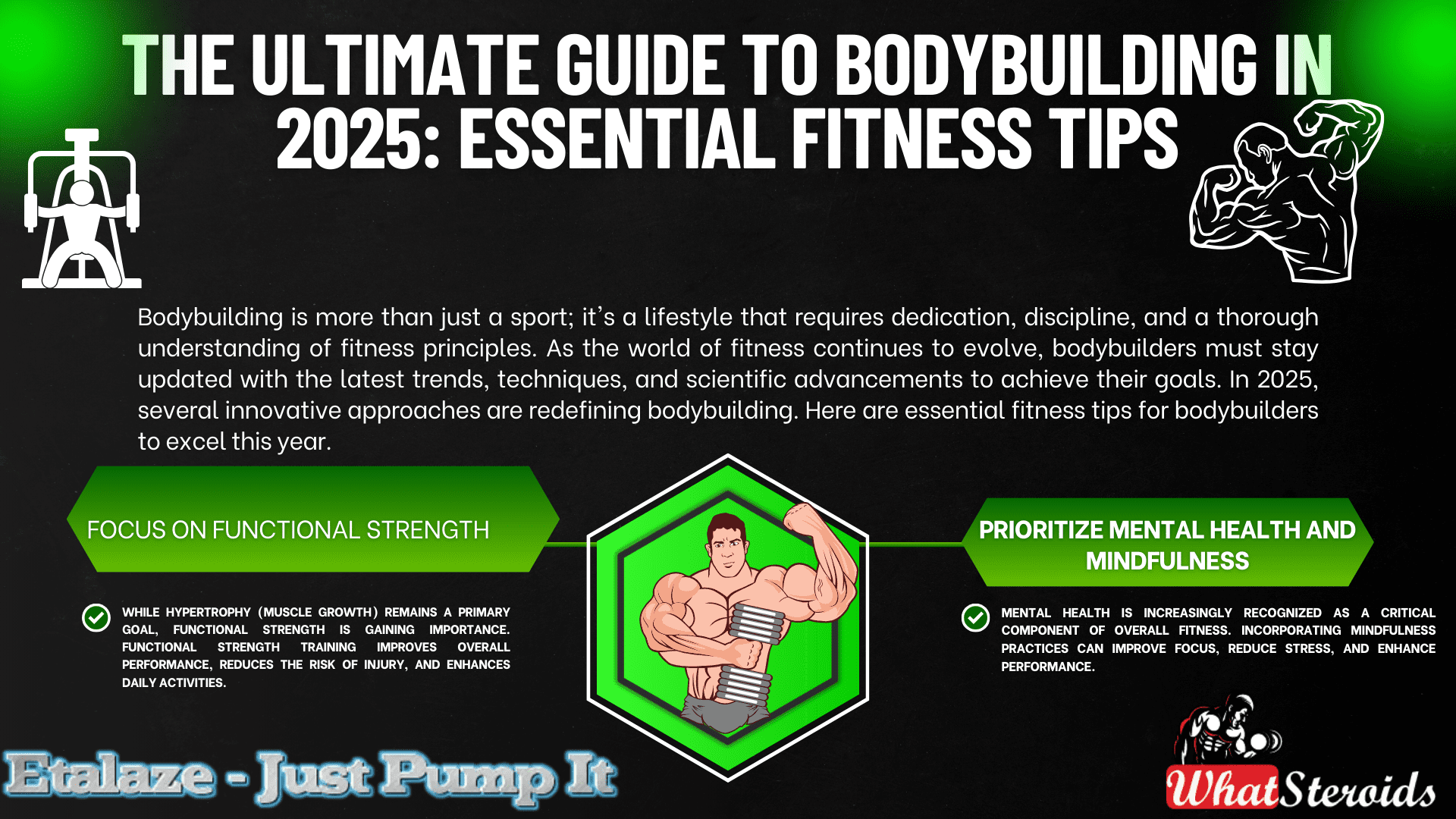
Bodybuilding is more than just a sport; it's a lifestyle that requires dedication, discipline, and a thorough understanding of fitness principles. As the world of fitness continues to evolve, bodybuilders must stay updated with the latest trends, techniques, and scientific advancements to achieve their goals. In 2025, several innovative approaches are redefining bodybuilding. Here are essential fitness tips for bodybuilders to excel this year.
Read More: Bodybuilder Winter Clothing: Staying Warm and Stylish
Embrace Technology-Driven Workouts
In 2025, technology plays a significant role in bodybuilding. Wearable devices, fitness apps, and virtual reality (VR) training are now integral components of an effective workout regimen.
Wearable Devices
Modern wearables track everything from heart rate and sleep patterns to muscle activation and caloric expenditure. Utilize these devices to monitor your progress and make data-driven adjustments to your training and nutrition plans.
Fitness Apps
Leverage fitness apps for customized workout plans, progress tracking, and virtual coaching. Many apps now incorporate artificial intelligence to provide personalized feedback and recommendations.
Virtual Reality Training
VR technology offers immersive workout experiences, allowing bodybuilders to simulate different training environments and scenarios. This can enhance motivation and add variety to your routine.
Focus on Functional Strength
While hypertrophy (muscle growth) remains a primary goal, functional strength is gaining importance. Functional strength training improves overall performance, reduces the risk of injury, and enhances daily activities.
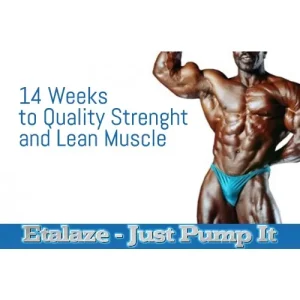 Check Out Our1 4 Weeks Quality Strength & Lean Muscles
Check Out Our1 4 Weeks Quality Strength & Lean Muscles
Compound Movements
Incorporate compound exercises like squats, deadlifts, and bench presses. These movements engage multiple muscle groups and joints, promoting balanced strength development.
Core Stability
Prioritize exercises that strengthen the core, such as planks, Russian twists, and leg raises. A strong core supports better lifting mechanics and reduces the risk of lower back injuries.
Optimize Nutrition for Muscle Growth and Recovery
Nutrition is the cornerstone of successful bodybuilding. In 2025, the focus is on personalized nutrition plans tailored to individual needs and goals.
Protein Intake
Ensure adequate protein intake to support muscle repair and growth. Aim for 1.6 to 2.2 grams of protein per kilogram of body weight per day, depending on your training intensity and goals.
 Click Here to Buy SynthaTrope By SynthaPharma
Click Here to Buy SynthaTrope By SynthaPharma
Nutrient Timing
Pay attention to nutrient timing to maximize muscle recovery and growth. Consume protein and carbohydrates within 30 minutes post-workout to replenish glycogen stores and kickstart muscle repair.
Supplements
Utilize supplements wisely. Creatine, branched-chain amino acids (BCAAs), and omega-3 fatty acids are popular choices for enhancing performance and recovery.
Prioritize Mental Health and Mindfulness
Mental health is increasingly recognized as a critical component of overall fitness. Incorporating mindfulness practices can improve focus, reduce stress, and enhance performance.
Meditation
Incorporate meditation into your daily routine to reduce stress and improve mental clarity. Mindfulness meditation can enhance your mind-muscle connection during workouts.
Visualization
Use visualization techniques to mentally rehearse your workouts. Visualizing successful lifts and achieving your goals can boost confidence and motivation.
Rest and Recovery
Prioritize rest and recovery to prevent burnout and overtraining. Ensure you get 7-9 hours of sleep per night and incorporate rest days into your training schedule.
Leverage Advanced Training Techniques
Advanced training techniques can help break through plateaus and stimulate muscle growth. In 2025, several methods are gaining popularity among bodybuilders.
Blood Flow Restriction (BFR) Training: BFR involves restricting blood flow to the muscles during low-intensity exercises. This technique can enhance muscle growth and strength without the need for heavy weights.
Eccentric Training: Focus on the eccentric (lowering) phase of exercises. Eccentric training can stimulate greater muscle damage and growth compared to traditional concentric movements.
Periodization: Implement periodization into your training plan. Varying the intensity, volume, and type of exercises can prevent plateaus and ensure continuous progress.
Incorporate Recovery and Mobility Work
Recovery and mobility are essential for preventing injuries and maintaining optimal performance. In 2025, bodybuilders are paying more attention to these aspects of training.
Foam Rolling and Myofascial Release: Use foam rollers and massage balls to release muscle tightness and improve flexibility. Regular myofascial release can reduce soreness and enhance recovery.
Stretching: Incorporate dynamic stretching before workouts and static stretching after workouts. Stretching improves range of motion and prevents muscle imbalances.
Cryotherapy and Hydrotherapy: Explore recovery techniques like cryotherapy (cold therapy) and hydrotherapy (water therapy) to reduce inflammation and accelerate muscle recovery.
Engage in Continuous Learning and Community Building
The fitness industry is constantly evolving, and staying informed is crucial for success. Engage in continuous learning and connect with the bodybuilding community for support and motivation.
Educational Resources: Read books, watch videos, and attend seminars to stay updated on the latest research and trends in bodybuilding.
Community Engagement: Join online forums, social media groups, and local bodybuilding clubs. Sharing experiences and knowledge with fellow bodybuilders can provide valuable insights and encouragement.
Professional Guidance: Consider working with a certified personal trainer or coach. Professional guidance can help you optimize your training and nutrition plans, ensuring you're on the right track.
With your FB Plus subscription or active FB Plus Pass, you now have access to 124 weeks of our most popular workout programs, which typically sell for $10-$30 each. Additionally, our popular 4-week Meal Plan is included. This is on top of the 38 Challenges and Programs that are already available to Plus members.
We've also introduced a new feature that many of you have requested. To assist you in choosing your next program, you can now preview each day of any program from its detail view. This feature lets you see all the included workout videos and content before you schedule it, ensuring you know exactly what to expect.
Conclusion
In 2025, bodybuilding is more than just lifting weights; it's a holistic approach to fitness that encompasses technology, nutrition, mental health, and advanced training techniques. By embracing these fitness tips, bodybuilders can achieve their goals, stay injury-free, and enjoy a fulfilling fitness journey. Remember, consistency and dedication are key to success in bodybuilding. Stay committed, keep learning, and most importantly, have fun on your path to becoming the best version of yourself.
Bodybuilding
Top Video Games for Bodybuilders in 2025

There are several video games that can be great for bodybuilders, combining fitness and fun! Here are some of the best options:
Ring Fit Adventure (Nintendo Switch)
The game uses the Ring-Con and Leg Strap to guide you through various exercises and adventures. It's a fun way to get a full-body workout while playing a game.
Fitness Boxing 2: VR Boxing Remastered (PlayStation VR)
It offers a full-body boxing workout with a variety of punches and combos. It's a great way to improve your fitness while enjoying a virtual boxing experience.
Must Read: Marvel-Inspired Training Clothing on Amazon
Just Dance 2024
This popular dance game gets you moving to the beat with a variety of songs and dance routines. It's a fun way to burn calories and improve your coordination.
Zumba Fitness
Burn It Off (Nintendo Wii): This game offers a fun and energetic Zumba workout, perfect for those who enjoy dancing and want to get a good cardio workout.
Yoga for Beginners
If you're looking for a more relaxing workout, yoga games can help improve flexibility and reduce stress. Many of these games offer guided yoga sessions that you can follow along with.
Gym Tycoon
This game lets you build and manage your own gym, complete with various workout equipment and fitness classes. It's a great way to learn about different exercises and how to create effective workout routines.
The Sims 4: Fitness Stuff Pack
This expansion pack for The Sims 4 adds fitness equipment and activities to the game, allowing you to improve your character's fitness and join the athlete career.
Grand Theft Auto: San Andreas
While not a traditional fitness game, this classic game includes bodybuilding activities that can help your character gain muscle and improve fitness.
Knockout Home Fitness (Nintendo Switch)
This game offers a variety of boxing workouts that can help improve your strength and endurance.
Gym Simulator 24 (PC)
In this simulation game, you can build and manage your own fitness empire, creating workout routines and managing gym equipment.
Let's Get Fit (Nintendo Switch)
This game focuses on pure workouts, allowing you to set programs and follow along with digital trainers for a customized fitness experience.
Beat Saber (VR)
A popular VR game where you slash blocks to the beat of the music, providing an intense full-body workout.
Synth Riders (PlayStation VR)
This game combines freestyle dance and fitness, offering high-tempo tracks and multiplayer modes for a fun and energetic workout.
Yoga Master (PlayStation)
Designed by professional yoga coaches, this game offers a variety of yoga lessons and poses to improve flexibility and reduce stress.
Les Mills Bodycombat (PlayStation VR)
A martial arts-inspired workout game with a range of workout plans and coaching to keep you motivated.
OhShape Ultimate (PlayStation VR)
This game provides a full-body cardio workout with six sessions and two difficulty levels, designed to engage every part of your body.
These games offer a mix of cardio, strength, and flexibility workouts, making them great additions to your fitness routine.
Related Article: Supplemental Breast Milk for Bodybuilders
-

 Steroids2 years ago
Steroids2 years agoShavers and Other Body Grooming Equipment for Bodybuilders In 2023
-

 Steroids2 years ago
Steroids2 years agoChatGPT and Other Avenues to Find Great Bodybuilding Coaches
-

 Steroids2 years ago
Steroids2 years agoBest Oil Recommendations Before Competition for Subtle Shimmer
-
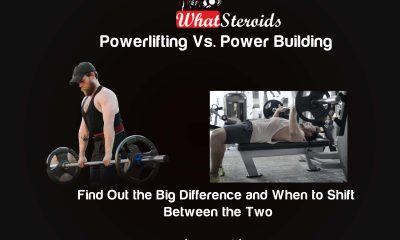
 Steroids2 years ago
Steroids2 years agoPowerlifting Vs Power Building: Find Out the Big Difference and When to Shift Between the Two
-

 Nutrition1 year ago
Nutrition1 year agoEverything Nutritional Food: What’s Too Much Or Too Little
-
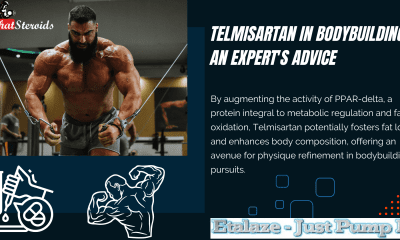
 Bodybuilding Products1 year ago
Bodybuilding Products1 year agoTelmisartan In Bodybuilding: An Expert’s Advice
-

 Anabolic Steroids1 year ago
Anabolic Steroids1 year agoLegality of Anabolic Steroids In Latin America
-

 Beginners2 years ago
Beginners2 years agoTren Cycle for Beginners
-

 Bodybuilding1 year ago
Bodybuilding1 year agoChia Seeds in A Bodybuilder’s Diet: An Expert’s Advice
-
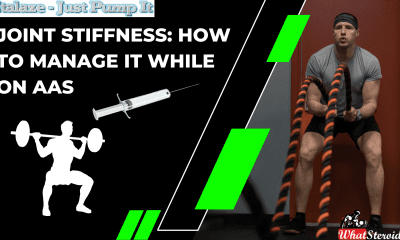
 Anabolic Steroids9 months ago
Anabolic Steroids9 months agoJoint Stiffness: How to Manage It While on AAS
-
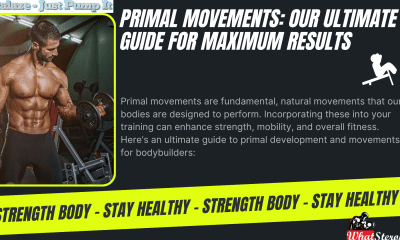
 Bodybuilding8 months ago
Bodybuilding8 months agoPrimal Movements: Our Ultimate Guide for Maximum Results
-
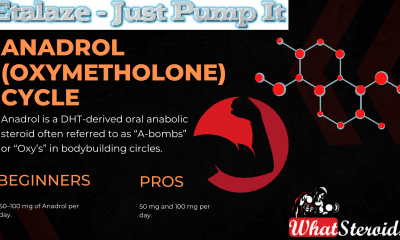
 Steroids12 months ago
Steroids12 months agoAnadrol Cycle: Benefits, Doses, Alternatives, etc.
-
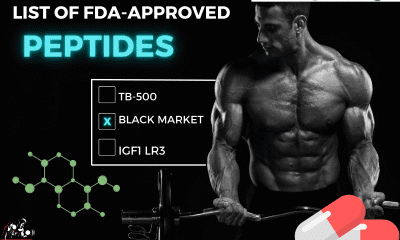
 Bodybuilding1 year ago
Bodybuilding1 year agoList of FDA-Approved Peptides
-
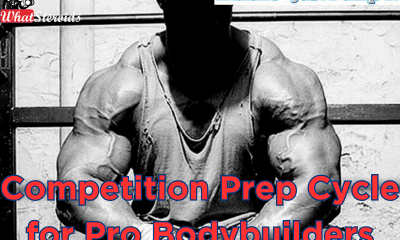
 Bodybuilding2 years ago
Bodybuilding2 years agoCompetition Prep Cycle for Pro Bodybuilders
-
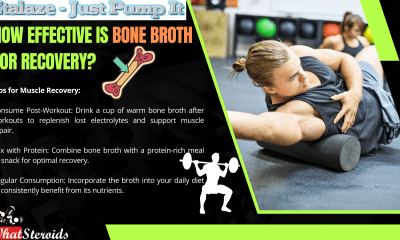
 Bodybuilding8 months ago
Bodybuilding8 months agoHow Effective is Bone Broth for Recovery?
-
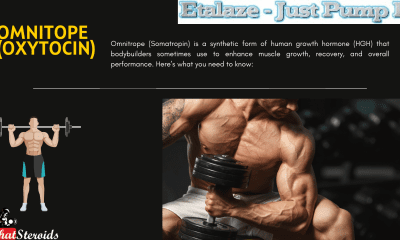
 Steroids10 months ago
Steroids10 months agoOmnitope (Oxytocin)
-
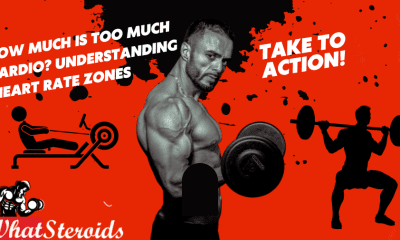
 Bodybuilding1 year ago
Bodybuilding1 year agoHow Much Is Too Much Cardio? Understanding Heart Rate Zones
-
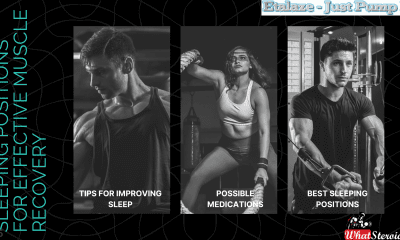
 Steroids9 months ago
Steroids9 months agoSleeping Positions for Effective Muscle Recovery
-

 Anabolic Steroids11 months ago
Anabolic Steroids11 months agoHow Much Do You Know About B-AET? A Fat Burner You’ve Been Missing
-
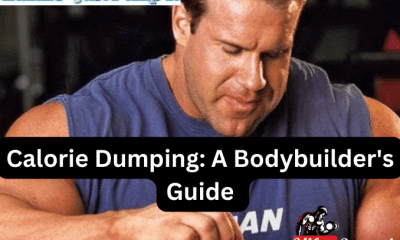
 Bodybuilding1 year ago
Bodybuilding1 year agoCalorie Dumping: A Bodybuilder’s Guide
-
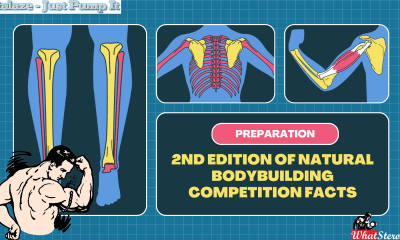
 Bodybuilding8 months ago
Bodybuilding8 months ago2nd Edition of Natural Bodybuilding Competition Facts
-

 Product Reviews11 months ago
Product Reviews11 months agoTop Vitamins for Skin Health
-
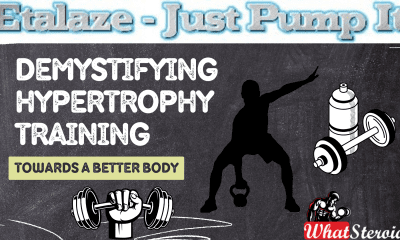
 Bodybuilding1 year ago
Bodybuilding1 year agoDemystifying Hypertrophy Training
-
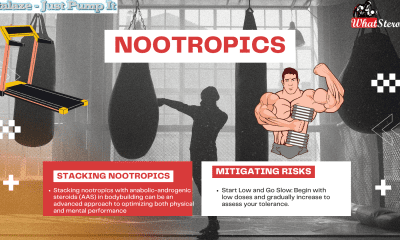
 Bodybuilding8 months ago
Bodybuilding8 months agoAre Nootropics a Better Option to AAS?
-
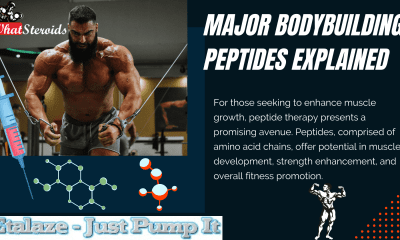
 Steroids11 months ago
Steroids11 months agoMajor Bodybuilding Peptides Explained

















